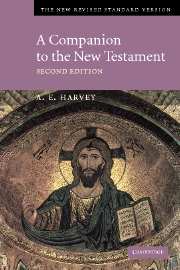Summary
The prologue
The purpose of the gospel according to John is declared, not at the beginning, but at the end, “in order that you may come to believe that Jesus is the Messiah” (20.31).
To anyone (other than a Christian) who understood what was meant by the term ‘Messiah’, it might have come as a surprise that a book should have to be written for this purpose. The Messiah, by definition, was a figure of power and glory. When he came, it would surely be impossible not to be aware of the fact. His destiny was to restore a kingdom of unprecedented splendour and justice to God's elect people. Once his reign had begun, it would hardly be necessary to write a book to prove that he had come.
Nevertheless, Christians were not deterred from calling Jesus ‘Christ’ (Messiah) even though the fact that the Messiah had come was not recognized by more than a handful of the human race, indeed not even by the Jews, who prayed for his coming in their daily prayers. For this technical term of Jewish religion seemed the natural way to describe one who had actually been among them on earth, who was now at God's right hand in heaven, and who was the source of new life for his followers. They were able to find Old Testament texts which not only prophesied his glory but also implied a destiny of suffering and rejection; and the more they reflected on the life and teaching of Jesus the better they began to understand the mysterious necessity that “the Messiah should suffer these things” (Luke 24.26) and that his reign was to be, at least for the present, unrecognized by all but a few.
- Type
- Chapter
- Information
- A Companion to the New Testament , pp. 290 - 385Publisher: Cambridge University PressPrint publication year: 2004



